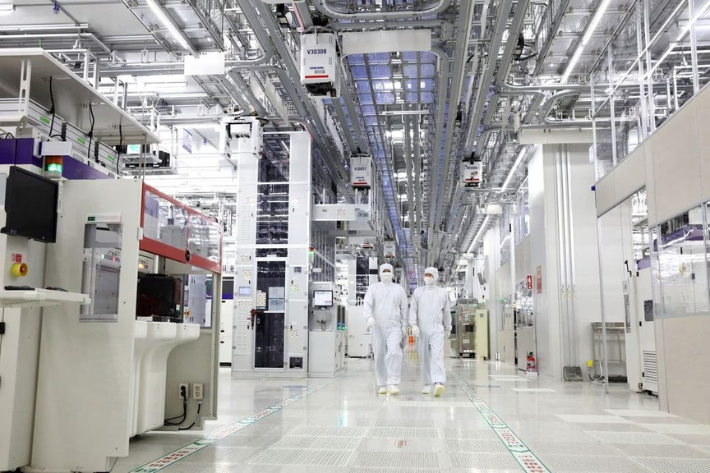As union workers at Samsung Electronics prepare to go on strike from next week, concerns are rising about the possible impact of their walkout on production at the world’s largest memory chipmaker.
Analysts say the strike, planned to last three days for now, is unlikely to have a major impact on chip output as most production at chipmaker is automated.
However, that could change depending on how many people operating Samsung’s chip plants participate in the strike — and for how long.
Also on AF: US Ban on Investment Not Good For AI Sector, China Says
“Chip production cannot proceed with replacement workers,” Kim Yang-Paeng, senior researcher at the Korea Institute for Industrial Economics and Trade, said.
Operating Samsung’s automated machines requires “specificity and expertise”, Kim said, pointing to risks in the event that workers who operate Samsung’s machinery walk out for an extended period of time.
Declaring the strike on Tuesday, the chief of the workers’ union at Samsung said it was prepared to strike until its demands for better pay and time off were met.
“We are declaring a general strike today,” Son Woo-mok, president of the National Samsung Electronics Union (NSEU), said on a live YouTube broadcast. “Until our demands are met, we will fight with the ‘no pay no work’ general strike.”
Later, union officials said the group had called a strike for July 8-10.
The strike’s purpose was to disrupt production, Lee Hyun-kuk, NSEU vice president said in a live YouTube broadcast.
The union could consider taking another stoppage if the company does not hear its demands, he added.
AI chip race
The NSEU said on Tuesday it is still determining how many workers will join the strike planned for next week. The union’s roughly 28,000 members make up over a fifth of Samsung’s workforce.
“This planned strike marks a turning point in Samsung’s history of non-union management. This could be seen as a drop in employee loyalty at Samsung… caused by wages and disappointing compensation compared to Samsung’s rivals,” a Seoul-based analyst said.
Any larger scale or protracted industrial action would be a headache for Samsung.
Despite a run of success, the chipmaker faces challenges in some areas, including in the production of some cutting-edge chips. It recently replaced the head of its semiconductor unit to navigate what it called a “crisis” affecting the industry.
A major challenge before Samsung is its scramble to catch up with rivals making high bandwidth memory (HBM) chips used in AI applications.
Samsung’s HBM chips are yet to pass Nvidia’s tests for use in the US firm’s AI processors due to heat and power consumption problems. Nvidia commands about 80% of the global graphic processing unit (GPU) market for AI applications.
Analysts say passing those tests would be a crucial milestone for Samsung, both reputationally and in terms of profit momentum.
The chipmaker is also looking to narrow its gap in contract chip manufacturing with Taiwan’s TSMC.
‘Equal partner’
Samsung is South Korea’s biggest conglomerate by revenue, but the chipmaker has seen multiple tiffs with workers in recent years over wages and other labour policies.
With this month’s strike, union workers are asking the company for a more transparent system for bonuses and time off and an extra day of annual leave.
NSEU’s Son said the union wants the company to treat it as an equal partner.
The union’s planned strike comes a little over a month after it staged the first-ever workout in the conglomerate’s 55-year history, stopping work for a day to demand better pay.
Samsung said at the time said there was no impact on production or business activity.
Meanwhile, the chipmaker has declined to comment on the planned strike for next week. Its share price closed little changed, compared with a 0.8% decline in the benchmark price index.
- Reuters, with additional editing by Vishakha Saxena
Also read:
Samsung Profit Soars, Says AI Spurring Strong Chip Demand
Apple iPhone Sales Slump 10%, Samsung Claims No1 Spot
Samsung Poised For Nine-Fold Profit Jump Thanks to Chip Rebound
Global Chip Sector ‘Can Never Return to its Pre-Covid Set-up’
Samsung to Pump $230 Billion Into ‘World’s Largest Chip Base’
Competition in Chip Industry an ‘All-Out War’, South Korea Says
Samsung Designs Generative AI Tech, For Use in Its Devices
























